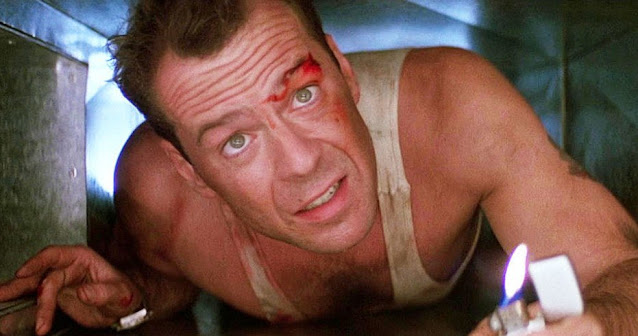"The Graduate" Bridged the Generation Gap
Director Mike Nichols said that while filming the Berkeley scenes in The Graduate in 1967, he sensed a great deal of “hostility” from the people of San Francisco. “To them, we represented the corruption of Hollywood and the middle class element of the United States,” said Nichols.
 |
| Vietnam War protesters in Berkeley in 1965 |
Dustin Hoffman recalled, “People that were critical of the film said, ‘How can you make a film about somebody coming out of college where there’s no mention of Vietnam, there’s no mention of pot, drugs, the women’s movement, and everything?’ Mike’s answer was, ‘Well, because we did the book.’ The book was written in ’62, and he made no attempt to update it.”
 |
| Vietnam protesters at the United Nations building in New York City in 1967 |
Katharine Ross recalled, “We were sort of still in the ‘50s mentality. While we were shooting in Berkeley, the Summer of Love happened in San Francisco – and Vietnam was about to blow the country apart and change us all forever.”
 |
| Janis Joplin (lower left) and friends in the Haight-Ashbury district of San Francisco in 1967 |
Screenwriter Buck Henry explained that the film was never specifically meant for the youth audience of 1967. “It was film made by and for a generation that hadn’t had films made for it,” he said. “We were just trying to make a film about something we understood. Mike Nichols, producer Larry Turman and I all thought we were ‘Benjamin.’ That’s how the book affected us. Nichols and Turman saw the behavior and events in the film as reflecting what they felt at Benjamin’s age, and so did I… Everyone I knew went through it – I think it’s true today, too. How to get away, and what the hell to get away to.” At the time, Henry, Nichols and Turman were all in their late thirties.
Even at Embassy Pictures, the studio which produced The Graduate, there were doubts that the script would appeal to youth. Stuart Byron, who was working there as a publicist, recalled, “In 1967, ‘our’ culture and ‘our’ concerns were approaching their zenith, and what did The Graduate have to do with them? The word ‘Vietnam’ was never mentioned. This was the basis of our conviction that The Graduate would flop. ‘Where is the relevance?’ we would cry, as soon as the bigwigs were out of earshot.”
Before The Graduate’s release, Mike Nichols took it on a tour of colleges at the studio’s insistence. The results weren’t encouraging. “I harped so much on the theme of doing anything, anything not to be like your parents,” he said. “Anything to get out of the middle class – except, of course, give up your car, your clothes. To be trapped in that place, to be an idiot rebel is something that was true for a lot of people, but it was completely unfashionable at the time.”
Instead, Nichols said, “what I heard the most from college students was, over and over and over and over, ‘Why isn’t it about Vietnam?’ Because that was the fashionable topic. That was the topic that showed what a serious person you were and how deeply involved, and to make a movie that was for young people and was not about Vietnam actually affronted them.”
 |
| Vietnam War protestor in Berkeley in 1965 |
Despite the initial reaction of college students, The Graduate went on to sell 90 million tickets. The youth audience forgave the film for failing to address Vietnam, and flocked to theaters for multiple viewings. At the first test screening in New York City, Nichols recalled, “From the moment that ‘Benjamin’ took the cross and beat back ‘Mr. Robinson’ in the church, the audience stood on its feet and screamed like at a prizefight. We were scared to death. We didn’t understand what had happened. And Dustin, who’d never seen the film, was in the balcony. He came out white as a sheet. We were all absolutely stunned. We didn’t understand what had happened, because it had hit some wind that was circling the Earth, something that nobody could have predicted, and just been lifted beyond what we ever could have imagined. I don’t think that it was a sort of madness of the time, or that it had all that much to do with its quality or lack of quality. It was some cultural thing that just exploded as a result of the film, but it was, of course, like all cultural things, already happening.”
The Graduate DVD: Bonus Commentaries
Stuart Byron, “Rules of the Game,” Village Voice, 1/6/82
Dan Georgakas, “From Words To Images,” Cineaste, 12/22/01
“History of The Graduate,” NPR’s Morning Edition, 12/9/02


Comments